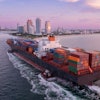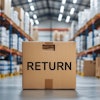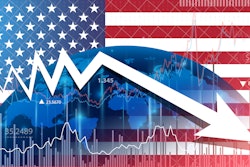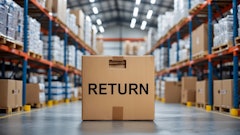
Nearly 83% of retailers report that the global economy has forced them to make adjustments to their ordering quantities and/or be more hesitant when placing orders for Black Friday and Cyber Monday inventory, according to new research from Anvyl.
In fact, economic uncertainties, such as fluctuations in exchange rates, trade tensions and supply chain disruptions, have compelled retailers to carefully assess their inventory needs and exercise caution in their procurement decisions, the study says.
Key takeaways:
- Nearly 65% of respondents expect inventory to arrive in their warehouses 2-4 weeks before Black Friday and Cyber Monday.
- 31% of retailers report they have seen the cost of goods increase by 5-10% this year. An additional one-third say they’ve experienced an increase of 10-20% or more.
- 85% of retailers are at least somewhat concerned about inventory shortages during Black Friday and Cyber Monday.
- What’s more, 80% of retailers plan to introduce new products in support of Black Friday and Cyber Monday.
- 63% of retailers are actively exploring new suppliers or sourcing regions to reduce the impact of potential disruptions.
- Retailers are also implementing a range of strategies to optimize operations, enhance supply chain resilience, and meet consumer expectations.
- 66% of brands say they plan to lock in shipping capacity and rates in July and August.
- Timeline for inventory preparation among respondents varied, but 33% of brands plan to begin as late as September.
“Proactive preparation is key for a successful Black Friday and Cyber Monday. In many ways, retailers are implementing a range of strategies to optimize operations, enhance supply chain resilience, and meet consumer expectations. However, they’re also exercising caution as fears surrounding a bad economic climate grow,” according to the study.




![Pros To Know 2026 [color]](https://img.sdcexec.com/mindful/acbm/workspaces/default/uploads/2025/08/prostoknow-2026-color.mduFvhpgMk.png?auto=format%2Ccompress&bg=fff&fill-color=fff&fit=fill&h=100&q=70&w=100)







![Pros To Know 2026 [color]](https://img.sdcexec.com/mindful/acbm/workspaces/default/uploads/2025/08/prostoknow-2026-color.mduFvhpgMk.png?ar=16%3A9&auto=format%2Ccompress&bg=fff&fill-color=fff&fit=fill&h=135&q=70&w=240)





